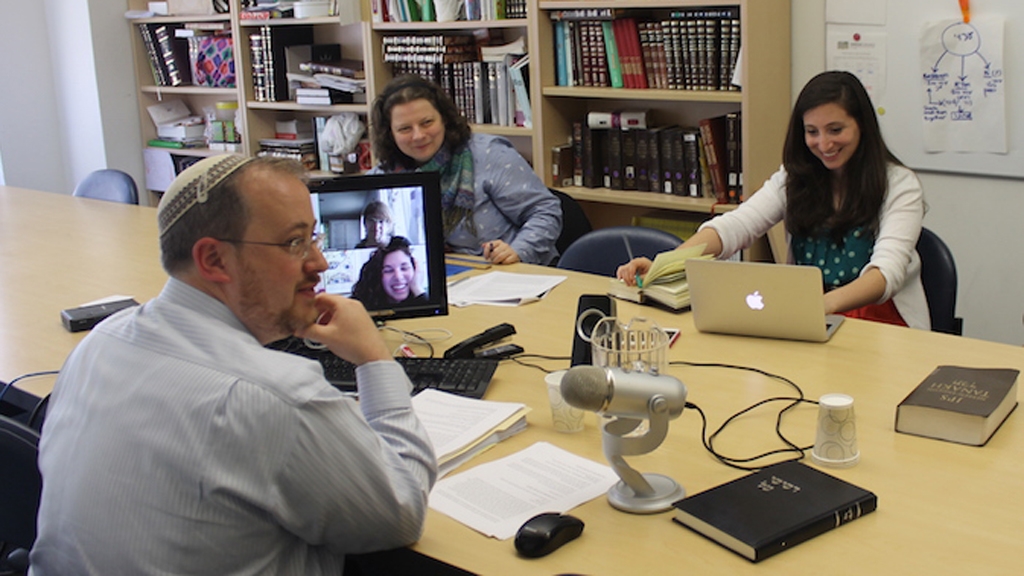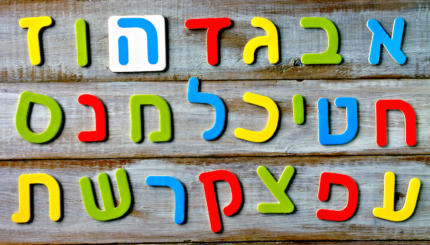Traditionally, Jewish study is not done alone, but with a partner, called a havruta.
With the advent of the Internet and improvements in live-streaming and video-conferencing technology, that havruta no longer has to be in the same room — or even the same city or country — as you.
Below we help you navigate your way through the world of online Jewish study by featuring a variety of ways (in addition to using My Jewish Learning, of course) that you can experience Jewish learning in community, from the comfort of your home. All the resources below are, like My Jewish Learning, open to all regardless of background or affiliation. Please note that all prices are subject to change.
And be sure to check out our other guides to online (and other) Jewish learning opportunities:

Help us keep Jewish knowledge accessible to millions of people around the world.
Your donation to My Jewish Learning fuels endless journeys of Jewish discovery. With your help, My Jewish Learning can continue to provide nonstop opportunities for learning, connection and growth.
- How to Learn Hebrew
- How to Find a Judaism 101 Class
- How to Learn About Judaism Online (On Your Own)
- How to Find Weekly Torah Commentaries Online
Did we miss something? Email us at community@myjewishlearning.org with suggestions.
Text Study
Project Zug
Project Zug (meaning “pair”) connects individuals to one another in order to partake in the Jewish tradition of havruta study – learning in groups of two. To begin, you choose one of Project Zug’s online courses, on subject matter ranging from the Jewish prayer book, to the sabbatical year, to Leonard Cohen. Once you’ve done so, it identifies someone else who is interested in learning the same material, whom you connect with via video chat for ongoing study together. Each course also includes two monthly video check-ins with a facilitator who helps to ensure you stay on track. The program also includes access to online forums where you can share your learning with others. (Pay-What-You-Want System, $36-$180)
Partners in Torah
Partners in Torah operates with a similar framework to Project Zug, connecting individuals to one another in groups of two to engage in Jewish learning via phone or video chat. The two biggest differences between the programs, however, are that Partners in Torah is free of charge, and in Partners in Torah one person has signed up specifically to be teacher while the other is a student. In addition, while Partners in Torah is open to all, its teachers are Orthodox and bring a traditional perspective. Another distinction is that Partners in Torah does not work within a framework of structured courses. This could be appealing to those who wish to design their own study, but also means that there are not regular check-ins with facilitators from the organization, as there are in Project Zug. (Free)
For Children
OnlineJewishLearning
OnlineJewishLearning brings Jewish education into the home, through 1-on-1 tutoring and small group learning. It utilizes video conferencing and screen-sharing technology in its work. Each program also utilizes free weekly podcasts, designed for families to share together. Many of its programs are designed for children, including b’nai mitzvah tutoring and Hebrew School at Home, but it provides adult education options as well, tailored to the interests of each student. (Cost ranges depending on the duration of study and particular needs of each student)
ShalomLearning
ShalomLearning offers an online Hebrew school experience for 2nd-7th grade students. Its main offerings include small group learning focused on Jewish values and identity, small group learning focused on Hebrew and prayer and private tutoring (all via synchronous, video conference classes. Their virtual classes generally consist of 8-10 students learning together. Special rates are available for military families. It offers 3-5 different time slots for each grade’s weekly meetings, so that families can determine the time that works best for their children. ($45/hr for tutoring, $300-$500 for one year of small group learning)
Literary
Jewish Women’s Archive: Online Book Club
The Jewish Women’s Archive offers a monthly online book club, featuring both fiction and nonfiction by and about Jewish women. The program also includes opportunities for participants to view or read interviews with the books’ authors (some interviews are recorded via video while others are written up as articles), read book reviews, and engage with discussion questions provided by JWA. (Free to participate, though participants must furnish their own books.)
Yiddish Book Center
The Yiddish Book Center provides a variety of online courses on Jewish topics (usually four weeks in duration), typically on a twice-per-year basis. These courses include videos, readings, and more, and past subjects have ranged from “The Romance and Tragedy of Soviet Yiddish Culture” to “The Rise and Fall of Ladino-Speaking Jews.” ($100 for YBC members, $130 for non-members)



